
The Polish Agricultural and Food Products Quality Inspectorate (IJHARS) in Poznan has issued a decision to ban the circulation of a batch of ice cream in cones weighing 7.13 tons imported from Ukraine.
The decision was made due to incorrect labeling, the inspectorate reported on social media platform X on Monday.
The decision was immediately enforced.
As reported, on April 12, the IJHARS banned access to the Polish market for two batches of sponge cakes weighing 10.55 thousand tons imported from Ukraine, and on April 9, three batches of Ukrainian bagels weighing 5.34 tons. Earlier, three batches of Ukrainian ice cream weighing 8.48 tons were seized in Lublin because it was defrosted.
In early April, the Polish Trade Inspectorate announced the largest fine in its history of 1.5 million zlotys (about $380 thousand) imposed on an importing company for importing 11.5 thousand tons of technical rapeseed and feed wheat from Ukraine as counterfeit goods for further use as food. In addition, a decision was made to ban the import of 57.66 tons of tomato paste from Ukraine due to the presence of mold.
In March, IJHARS Chief Inspector Przemysław Rzodkiewicz said that over the past year, 1.4% of the batches of products from Ukraine inspected by the commission at the border were rejected.
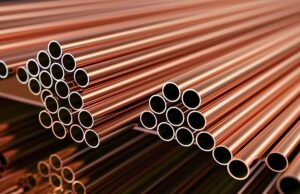
In January-March this year, Ukrainian companies increased imports of copper and copper products by 47.4% in value terms compared to the same period last year, to $42.018 million.
According to customs statistics released by the State Customs Service of Ukraine, exports of copper and copper products decreased by 16.9% to $18.138 million over the period.
In March, the country imported copper worth $12.893 million and exported it worth $7.242 million.
In addition, in January-March 2024, Ukraine increased imports of nickel and nickel products by 2.4 times compared to the same period in 2023, to $7.697 million (in March – $2.267 million), aluminum and aluminum products by 20%, to $98.535 million (in March – $38.102 million). At the same time, the country increased imports of lead and lead products by 30.1% to $281 thousand (in March – $140 thousand), imports of tin and tin products decreased by 4.3% to $620 thousand (in March – $113 thousand), and increased imports of zinc and zinc products by 55.6% to $11,860 (in March – $5,454 million).
Exports of aluminum and aluminum products in the first three months of 2024 increased by 1.2% compared to the same period a year earlier to $23.387 million (in March – $7.769 million), lead and lead products decreased by 36.1% to $2.834 million (in March – $1.076 million), nickel and nickel products amounted to $94 thousand (in March – $45 thousand), while in January-March 2023 it was $92 thousand.
Zinc exports for the first three months of this year amounted to $44 thousand (in March – $24 thousand), while in January-March 2023 it amounted to $46 thousand. Exports of tin and products amounted to $81 thousand (in March – $47 thousand) against $48 thousand in the same period a year earlier.
As reported, in 2023, Ukraine increased imports of copper and copper products by 2.2 times compared to 2022 – up to $140.795 million, while exports decreased by 20.1% to $72.078 million.
In addition, in 2023, Ukraine reduced imports of nickel and products by 74.2% compared to 2022, to $15.391 million, and increased imports of aluminum and aluminum products by 7.7%, to $366.463 million.
At the same time, it reduced imports of lead and lead products by 65.2% to $989 thousand, imports of tin and tin products by 23% to $2.728 million, but increased imports of zinc and zinc products by 18.8% to $45.966 million.
Exports of aluminum and aluminum products last year increased by 0.7% compared to 2022 to $97.616 million, lead and lead products increased by 23.5% to $14.778 million, and nickel and nickel products amounted to $532 thousand, while in 2022 it was $1.268 million.
In 2023, the company exported $130 thousand worth of zinc, compared to $1.331 million in 2022. Exports of tin and tin products amounted to $159 thousand against $424 thousand in 2022.
In 2022, Ukrainian enterprises reduced imports of copper and copper products in value terms by 64.3% compared to the previous year to $65.370 million, while their exports decreased by 56.3% to $90.245 million.
In addition, in 2022, Ukraine reduced imports of nickel and nickel products by 49.9% compared to 2021, to $59.754 million, and aluminum and aluminum products by 33.4%, to $340.398 million. At the same time, it reduced imports of lead and lead products by 66.6%, to $2.839 million.
Imports of tin and tin products fell by 33.5% to $3.312 million, and imports of zinc and zinc products decreased by 58.7% to $38.690 million.
In 2022, exports of aluminum and aluminum products decreased by 42.7% compared to 2021, to $96.972 million, lead and lead products – by 68.7%, to $11.970 million, and nickel and nickel products – by 73.9%, to $1.268 million.
Zinc exports in 2022 amounted to $1.331 million, while in 2021 they amounted to $550 thousand. Exports of tin and products in 2022 amounted to $424 thousand, compared to $346 thousand in the previous year.
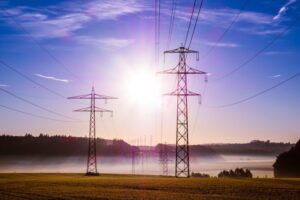
On Saturday, the Cabinet of Ministers of Ukraine invalidated Resolution No. 775 of July 7, 2022 “On Imposing Special Obligations on Electricity Market Participants Engaged in Electricity Export Operations to Ensure Public Interests in the Functioning of the Electricity Market During Martial Law.”
According to the government’s representative in parliament, Taras Melnychuk, this was done “in order to create preconditions for increasing electricity exports to the unified energy system of Ukraine.”
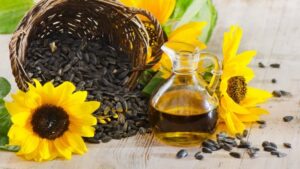
Moldovan Agriculture and Food Minister Vladimir Bola will meet on Monday with sunflower seed producers and processors due to the difficult situation in his country with sunflower oil production. According to the Moldovan news agency Infotag, the decision to discuss the problem was made after Floarea Soarelui, the largest oil producer, shut down two plants. The producers said they had no raw materials, as farmers refused to sell their seeds at the current market price, and sunflower imports are strictly licensed.
“Today, Moldova’s sunflower seed stocks are about 350 thsd tonnes, so any statements about lack of stocks are speculation. At the same time, the pricing policy should be objective, fair and responsible towards the end consumer,” Bola wrote on Facebook.
He emphasized that “by abandoning political statements and relying solely on the economic component,” the Ministry of Agriculture of Moldova will provide a platform for dialogue between seed producers and processors.
“Each party will provide real figures so that we can make decisions and find viable solutions for the new sunflower harvest,” Bola said.
As reported, Moldova has extended the licensing of sunflower seed imports from Ukraine for three months.
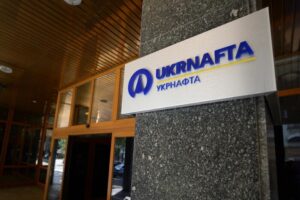
In 2024, PJSC Ukrnafta increased the volume and expanded the geography of imported fuel supplies from global producers to the country, the company’s press service reported on Facebook.
According to the press service, while last year the company imported fuel from the United States, Sweden, Poland, and Greece, in 2024 it also began importing large wholesale consignments from Denmark, Slovakia, and Turkey.
“All fuels produced by such powerful companies as Orlen, HELLENiQ ENERGY, Marathon Petroleum Company and others have the appropriate certificates and, due to their optimal characteristics, are guaranteed to preserve engine life. We invite you to visit Ukrnafta filling stations and guarantee that your car will be satisfied with our quality,” the statement says.
“Ukrnafta is the largest oil company in Ukraine and operates a national network of 537 filling stations, of which 456 are in operation. The company is implementing a comprehensive program to restore operations and update the format of its filling stations. Since February 2023, Ukrnafta has been issuing its own fuel coupons and NAFTAKarta cards, which are sold to legal entities and individuals through Ukrnafta-Postach LLC.
Ukrnafta’s largest shareholder is Naftogaz of Ukraine with a 50%+1 share. On November 5, 2022, the Supreme Commander-in-Chief of the Armed Forces of Ukraine decided to transfer to the state a share of corporate rights of the company owned by private owners, which is now managed by the Ministry of Defense.
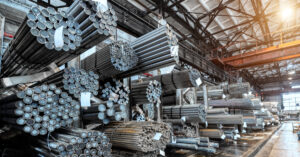
In January-February this year, Ukrainian enterprises reduced their consumption of rolled metal products by 24.95% year-on-year, down to 370.2 thousand tons from 493.3 thousand tons.
According to a press release issued by Ukrmetallurgprom on Thursday, 171.2 thousand tons, or 46.25% of the domestic rolled steel market, were imported during this period.
According to Ukrmetallurgprom, in January-February 2024, steel companies produced 900 thousand tons of rolled metal products (152.5% compared to the same period in 2023), of which, according to the State Customs Service of Ukraine, about 701 thousand tons, or 77.9%, were exported. In January-February 2023, the share of exports amounted to 38.5% (227 thousand tons with a total production of 590 thousand tons of rolled metal products).
The share of semi-finished products in export deliveries in January-February 2024 amounted to 47.50%, which is the same as in January-February 2023 (47.58%). The share of flat products in export deliveries significantly exceeded the figure for January-February 2023 (38.66% and 28.19%, respectively), while the share of long products was significantly lower than in January-February 2023 (13.84% in 2024 vs. 24.23% in 2023).
“In January-February 2024, the domestic market capacity amounted to 370.2 thousand tons of rolled steel, of which 171.2 thousand tons or 46.25% were imported. In January-February 2023, the domestic market capacity amounted to 493.3 thousand tons, of which 130.3 thousand tons, or 26.41%, were imported. Thus, in January-February 2024, there was a decrease in the domestic market capacity by 24.95% compared to two months of 2023, with a simultaneous increase in the share of the import component by 19.84%,” the press release states.
The structure of imports in January-February 2024 is still characterized by a significant dominance of flat products over long products (85.05% and 13.67%, respectively); in January-February 2023, the dominance of flat products over long products was also significant (77.97% and 20.49%, respectively).
According to the State Customs Service, the main export markets for Ukrainian rolled steel products in January-February this year were the European Union (80.6%), the rest of Europe (7.3%) and Africa (3.9%).
Among metallurgical importers, the first place was occupied by other European countries (42.9%), the second by the EU-27 (39.9%), and the third by Asian countries (16.9%).
As reported, Ukraine’s rolled steel market grew 2.19 times in 2023 compared to 2022, to 3 million 505.6 thousand tons. The company imported 1 million 118.6 thousand tons, or 31.91% of the domestic rolled steel consumption market.
In 2023, Ukrainian steelmakers produced 5.37 million tons of rolled metal products (100.4% compared to 2022), of which, according to the UAVtormet Expert and Scientific Council, about 2.99 million tons, or 55.6%, were exported.
In 2022, the share of exports amounted to 81.7% (4.37 million tons with a total production of 5.35 million tons of rolled metal products).
The share of semi-finished products in export deliveries in 2023 was 40.30%, which is significantly lower than in the same period in 2022 (43.45%). The share of flat products in exports for the year was also significantly higher than a year earlier (40.41% and 36.34%, respectively). At the same time, the share of long products is comparable to the figure for the previous similar reporting period (19.53% in 2023 vs. 20.21% in 2022).
In 2023, the domestic market capacity amounted to 3,505.6 thousand tons of rolled steel, of which 1,118.6 thousand tons, or 31.91%, were imported. In 2022, the domestic market capacity amounted to 1598.6 thousand tons, of which 621.6 thousand tons, or 38.88%, were imported. Thus, in 2023, there was an increase in the domestic market capacity by 119.29% compared to 2022, while the share of the import component decreased by 6.98%.
The structure of imports last year was still characterized by a significant dominance of flat products over long products (76.08% and 23.87%, respectively); in 2022, the dominance of flat products over long products was also significant (68.69% and 30.41%, respectively).
According to UAVtormet, the main export markets for Ukrainian steel products in 2023 were the EU (82%) and the rest of Europe (7.5%).
Among metallurgical importers in 2023, the first place was occupied by other European countries (42.4%), the second by the EU-27 (37.3%), and the third by Asian countries (18.2%).